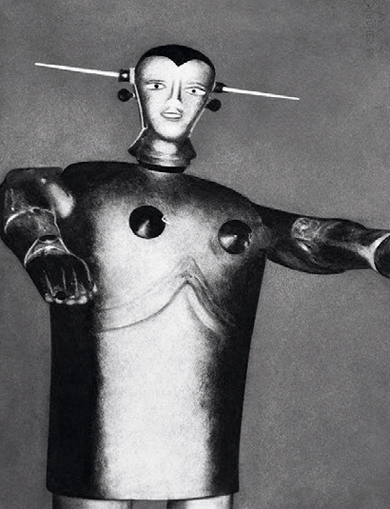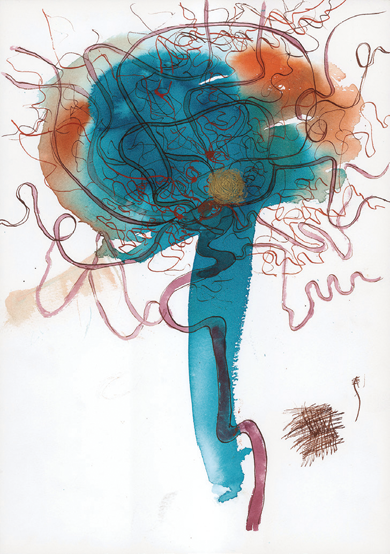Discussed in this essay:
Fully Automated Luxury Communism, by Aaron Bastani. Verso. 288 pages. $24.95.
Conscience: The Origins of Moral Intuition, by Patricia Churchland. W. W. Norton. 272 pages. $27.95.
The Dry Heart, by Natalia Ginzburg. Translated from the Italian by Frances Frenaye. New Directions. 96 pages. $12.95.
Happiness, as Such, by Natalia Ginzburg. Translated from the Italian by Minna Zallman Proctor. New Directions. 240 pages. $15.95.
If there has ever been a historical moment apt to foster optimism of the intellect, right now would not appear to be it. So it’s heartening to see how much is nonetheless available. This spring, Representative Alexandria Ocasio-Cortez was quoted as saying that, in a more just or sensibly organized social system, “we should be excited” about automation rather than fearing the mass joblessness it will bring:
What it could potentially mean is more time educating ourselves, more time creating art, more time investing in and investigating the sciences, more time focused on invention, more time going to space, more time enjoying the world that we live in. Because not all creativity needs to be bonded by wage.

Portrait of “Sabor”/Drawing of a Photograph of a Robot, circa 1955, by Thomas Zummer © The artist
You can find a similar sentiment in Karl Marx, who famously envisaged a communist society in which anyone could be free “to hunt in the morning, fish in the afternoon, rear cattle in the evening, criticize after dinner, just as I have a mind, without ever becoming hunter, fisherman, herdsman or critic.” And the same idea animates Aaron Bastani’s first book, Fully Automated Luxury Communism (Verso, $24.95), a startlingly sunny and audacious manifesto that reads the extremity of current political, economic, and environmental crises as a sign of the scale of opportunity for radical change.
Bastani, co-founder of a left-wing, London-based media organization called Novara, gamely reclaims the stuff of dystopia for a more buoyant vision, in chapters on robots, asteroid mining, gene editing, and animal-free meat (the rumors of independently grown “lumps of chicken” that schoolchildren once used to scare one another are evidently no longer mere urban legend). He’s describing an age of “post-scarcity” and “extreme supply,” in which advanced knowledge, cheap technology, and material abundance of every kind are available, if only the One-Percenters and their enablers in government can be made to loosen their illegitimate grip on it all. He lays out plans for a redistribution of resources both within national boundaries and outside them—state-funded “universal basic services,” ways of hastening the transition to renewable energy, a network of small local-development banks, an end to central banks’ dedication to keeping inflation low at all costs. The eventual goal is an extravagantly lyrical communist future in which every need is satisfied and the means are found to “dissolve any boundary between the useful and the beautiful.”
For some readers, this will veer too far into the realm of utopian fiction. (Bastani playfully addresses the issue of what is or isn’t realistic in an introductory sketch entitled “Six Characters in Search of a Future”: Federica hides a smile at the unexpected tact of her digital assistant; Doug swears at the cop who’s requesting his name, address, and retina scan, having caught him walking Noodle, his illegally gene-edited dachshund.) Yet the book’s power is in its reminder of how much convenient fantasy is already required to sustain the status quo. Plans for improving public services, for instance, are routinely branded impractical or too expensive when they are simply unpopular with powerful interests. So-called free-market economies depend heavily on central planning and protectionism. Bastani is amused at the fear and loathing inspired by anticapitalist views like his own (or those of Ocasio-Cortez), when the existing system so often resembles a “bizarre hybrid allying the worst features of market capitalism and state socialism.” (Here Bastani’s position is bolstered, I’d say, by the staggering incompetence of successive British governments’ privatization efforts, vividly chronicled in James Meek’s Private Island—including public-private partnerships through which vast quantities of state money vanished into corporate coffers while the services they were meant to fund visibly declined.) Flashy gadgets aside, Bastani’s arguments rest on the conviction that the major problems that face citizens are political in nature—and thus that their only possible solutions will be political, too.
The most affecting moment in the book comes before it begins, when Bastani acknowledges that he’s “indebted to the many people who fought for a political settlement which gave me free healthcare and cheap education. Without you I would not be alive, let alone writing a book.” This sense of collective effort as the main source of strength and ethical action is one the neuro-philosopher Patricia Churchland shares in her own consideration of what the good life might entail, Conscience: The Origins of Moral Intuition (W. W. Norton, $27.95). But she’s a lot less sanguine about the promise of politics than Bastani is. She emphasizes studies that suggest that political views may be largely determined by heritable traits that govern emotional reactions (for instance, the intensity of your disgust on seeing a picture of worms wriggling in someone’s mouth), and blames our attachment to ideology and its hubristic “certitude” for history’s worst moral transgressions.

Infrared image of asteroids and the Tadpole Nebula. Courtesy NASA/JPL-Caltech/U.C.L.A.
Churchland makes the case that all our moral decision-making—whether to lie to protect a friend, whether to restrict abortion or to allow assisted suicide—is rooted not in divine guidance or the dictates of reason, but in the interactions of the frontal cortex, the hippocampus, and the basal ganglia. Human beings are wired to give and receive care, skills reinforced via attachment to a parent during the lengthy phase of childhood dependency, here adorably termed “the snuggle for survival.” Over time, we’ve learned to cooperate in increasingly sophisticated fashion. Cue all sorts of vivid forays into the capacity of rats for self-discipline, fairness, or generosity, and what one prairie vole might be willing to do for the love of another.
Like many enthusiasts for applying evolutionary neuroscience to the humanities, Churchland appears somewhat battle-hardened. Despite the central importance she gives to our innate desire to play nicely with those around us, you sense that Churchland’s own must have been sorely tested by a career among the academic philosophers. “In the sheltered life” of most mainstream moral philosophers in the West, she scathingly notes at one point, “practical wisdom may be in short supply, replaced either by endless dithering or unwavering adherence to a favored ideology.” Her dominant rivals are swiftly dismissed: any system that relies on a god has already been disemboweled by Socrates in a single sentence; Kantians confuse what’s right with what’s merely internally consistent; utilitarians, in many situations, can’t avoid utter monstrosity without undermining their only distinctive principle. She nicknames such philosophers “the rule purveyors” for their shared focus on discovering universal moral laws, and charges them with monomania—each focusing on only one aspect of a moral decision, when in reality the brain weighs many different constraints to work its way out of a particular mess. Churchland is a proud Humean who believes in obeying your natural sympathies and checking them as you go against the imagined perspective of an impartial observer.
She favors this approach over the available alternatives on the grounds of evidence, pragmatism, and even, implicitly, ethics, since it’s the one she finds most impervious to arrogant delusions and dogma. Still, as a basis for doing philosophy per se, it has some obvious difficulties. You can accept that there’s a biological substrate to any given aspect of the human condition without assuming that more information about the brain will meaningfully deepen your understanding. Out of a vast tangle of neural connections might emerge a consciousness capable of producing Ulysses, or a whole system of moral thought and action. Yet it seems uncontroversial to suggest that you can glean more about what it means to live and think by reading Ulysses than you ever could by shoving James Joyce inside an MRI machine.
Churchland isn’t entirely consistent on this point—while she takes pains to avoid the charges of reductionism and determinism that have always dogged evo-devo aficionados, she nonetheless enthuses here and there about the possibility that within a few years we might hope for a more “precise neurobiological answer” as to “why a seemingly decent person acted against conscience by taking a bribe or molesting a child or lying under oath,” one that she feels may be, if still not complete, “richer and more satisfying” than those offered by religion, mainstream philosophy, psychology, or psychoanalysis.
The test of a moral philosophy is surely not where it begins so much as where it leads, and here the results are mixed. As Churchland admits, a system based on the glow of social approbation and affection versus the shame and pain of their inverse is vulnerable to all kinds of abuse. Neurochemicals such as oxytocin may encourage us to love and cooperate with one another, but they may also play their part in strengthening the bonds between members of one gang as they prepare to crush another. At times it’s hard not to read her line as a snugglier form of utilitarianism, in which what’s good for the family or community is, near enough, what’s good—and it’s not clear how to handle situations in which your group’s interests come up against those of a group that’s smaller, weaker, or farther away.Then, if you’re going to biologize morality and center emotional wiring, there’s the question of how a society ought to treat those whose brains seem not to conform to the cheering, cooperative norm. Churchland, in a closing chapter called “The Practical Side,” sounds remarkably relaxed about this. Around a quarter of the U.S. prison population, she states (offering no citation), are diagnosed psychopaths, and “many more . . . have antisocial personality disorder.” Since the data on how such individuals got that way—a genetic malfunction, a head injury, an unhappy childhood?—is thus far inconclusive, and it’s “worse than far-fetched . . . to conceive of a magic pill that would just transform a psychopath into an empathic, decent, law-abiding citizen,” the only viable policy is apparently to lock them up and lose the key.
The severest dangers of essentializing in this way are obvious. Yet there are also other, subtler risks. Take the metaphor Churchland uses for achieving a well-regulated, morally balanced life, which she compares to the process of learning physical balance, how to stand and move without falling over. It’s a telling image—the trick being, after all, not to lean too far in any direction. In the absence of God or pure reason, she claims, the traditions and institutions that have developed over generations are what we have to anchor our moral decision-making. The rather Burkean implication is that such customs and institutions mostly embody accumulated practical wisdom and goodwill rather than, say, a set of mechanisms by which some groups have established and reinforced their dominance over others. How, then, might any major entrenched injustice or inequity be legitimately corrected? One quality Churchland’s book shares with Bastani’s is an optimism regarding social life that’s sometimes hard to square with the underlying situation each describes—what she lacks is Bastani’s healthy suspicion of a spuriously depoliticized “common sense.”
The knotty relationship between abstract principles and how people actually live with and care for one another, or don’t, are easier to approach in fiction, which can far more gracefully afford ambiguity and contradiction. The protagonist of the late Natalia Ginzburg’s 1947 novella The Dry Heart, just reissued in English (New Directions, $12.95; translated from the Italian by Frances Frenaye), shoots her husband between the eyes with his own revolver on the first page. She has various reasons, and no reason: their baby has died; he loves another woman; he neglects and deceives and patronizes, and misquotes Dante while he’s at it. Marriage, which had seemed an enchanting escape from her tedious, impoverished isolation—the “worn gloves and very little spending money,” the “dingy boarding-house,” the chilly schoolroom in which she taught Ovid—is in every way disappointing. (It probably doesn’t help that the husband’s mistress has told her she looks “like too much of a simple country girl” to murder anyone.)

Location Drawing 1, by Susan Aldworth © Private Collection/Bridgeman Images
The prose is plain, direct but restrained, and much goes unsaid. Domestic life, its frustrations and miseries, occupies the foreground, the outside world barely discernible at the edges. A similar technique can be found in a richer and much later Ginzburg novel, Happiness, as Such, from 1975, also being reissued, in a new translation by Minna Zallman Proctor (New Directions, $15.95). Set over a year or so in the early Seventies, it revolves around Michele, an absent, unreliable young anti-fascist who has fled to England, and is told partly through the letters of his mother, his sister, his sometime-girlfriend (with a baby in tow that may be his), and a male friend (possibly his lover). The web of connections between private and public life, between the intellectual and the emotional and the political, is delicately visible, only occasionally breaking the surface—an effect typical even of Ginzburg’s more autobiographical work, though she came from a highly active political family and her first husband had been tortured and killed in prison by the Nazis in 1944. Here, people casually or resentfully provide for one another, arranging jobs and housing and passing items back and forth; Michele especially is always asking relatives or friends to fetch something and send it to him—Kant’s Critique of Pure Reason, for example—or (in the case of his gun) to dispose of it. Similar imagery is repeated, often of a mundane kind that carries with it a symbolic weight—an estranged husband brushes mud from his ex’s dress; a mother scrapes the same off her child’s shoes with a knife.
Despite Ginzburg’s wry observational humor, the mood grows increasingly melancholy. Happiness is fleeting and only recognizable in retrospect, if it exists at all, “a possibility we can’t exclude, despite so rarely seeing evidence of it in this world that’s been given to us,” as per Michele’s mother, who uses the same formulation about the existence of God. Political convictions are hard to sustain and don’t help you treat others well, though that doesn’t mean you might not die for yours at any moment. An exchange between Michele’s sister Angelica and his wayward ex-girlfriend, Mara, who’s always on the make or the take, trying to get by as best she can, has a characteristically glancing elegance. Whether or not the baby is Michele’s, Angelica tells her, the family will send her money: “I don’t believe that obligations should have explanations.” Demolishing a moral foundation or perhaps establishing the only practical one, Mara agrees: “We don’t need reasons for what we feel we need to do or not do. There aren’t reasons. It would be a huge drag if there were reasons for everything.”






































































































